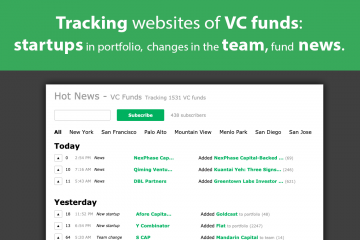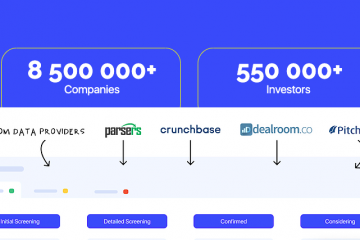Big data in small business: myth or reality
Why does a small business need big data, where to get it and how to use it, minimizing the costs of introducing complex technologies – we understand practical examples.
Where Big Data in a small business and why they are needed
Imagine the surprise of your client, when he just crossed the threshold of your cozy coffee shop or family hotel, will be warmly called by name and warmly welcomed by the new administrator. Thanks to the RFID-tag built into the loyalty card, information about the buyer from your CRM-system, including data from its pages in social networks, quickly appears on the employee’s phone. Your employee congratulates the client on the successful completion of the project and in honor of this offers to add to the usual product (hotel room or lunch menu) an additional option. The consumer, flattered by this attention, agrees with pleasure, providing you with an increase in the level of sales and an increase in total revenue.
And a few days after the visit of the buyer he receives your message with the action on exactly the products that he liked the most. Colorful banner in social networks, SMS or email promises a nice discount on your next purchase, not only your customer but also his friends, who automatically calculated the algorithm of machine learning. A potential consumer visits your website and sees a personal offer for a profitable purchase of a product or service that is of interest to him. The visitor turns into a buyer, and you consider the profit growth and choose a strategy for further development of the options offered by the machine learning model. All this is not fiction, but only a few possible scenarios of using Big Data in small business.
Big Data Analytics is an applied tool of a modern marketer, including in small business.
How to use big data in small business and how much it costs
Monetization of big data is supplemented with possibility of automatic control of corporate reputation on the Internet (SERM), targeted advertising and personalized marketing. And all these techniques are relevant not only for giant corporations. Big Data and Machine Learning technologies are also applicable in small and medium-sized businesses of any application industry – where it is necessary to collect and analyze large amounts of multi-format information. Information from your corporate systems, e-mail, file storage, paper records, archives and social networks are all data sources for machine learning models and algorithms that will allow you to attract new customers and retain existing ones.
Even 5 years ago, in 2014, 70% of large companies already planned to use Big Data and Machine Learning, and in the small and medium-sized business sector this figure was 56%. Today, these technologies are turning from exotic concepts into applied tools for solving practical problems, but their implementation is still quite expensive (about several thousand dollars) for small and medium-sized businesses. Nevertheless, the growing demand for such products provokes the emergence of new software solutions and services. Big Data Analytics tools built into cloud CRM -, RTB-, ERP-and other business systems are rapidly becoming cheaper. Therefore, now it is most profitable for small and medium-sized businesses not to deploy Big Data-infrastructure on their own capacities, but to use SAAS-software.
However, even in this case, the company needs a competent big data specialist who will be able to analyze them effectively, choose the most profitable algorithm and formulate a promising hypothesis for machine learning. In addition, the management of the enterprise must understand the application specifics of these technologies to meet the expectations of their implementation.


